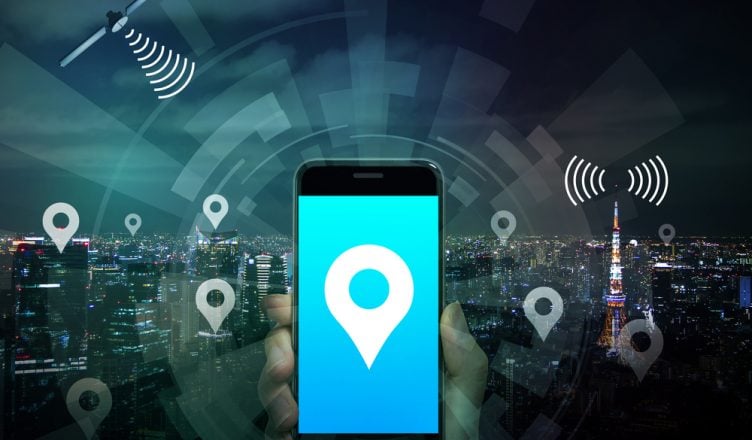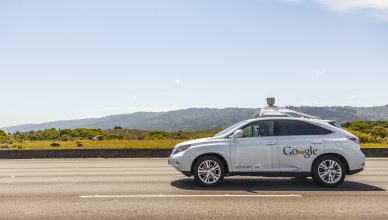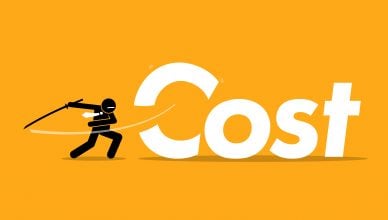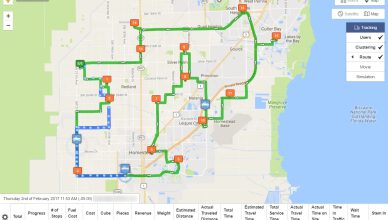Businesses that send employees out into the field must be able to track those employees.
Otherwise, you’ll be burdened with a whole host of problems. If a customer wants to check on your ETA, you’d need to distract your field employee with a phone call and then relay their location back to the customer. That’s a cumbersome (and potentially dangerous) process.
Also, when employees aren’t being watched, they often perform poorly. They’ll know that they can get away with speeding, extra-long breaks, and even running personal errands while they’re on the clock.
That’s unacceptable, of course. Such activities cost you money, risk your employees’ safety, and damage your relationships with customers.
So, you need to track your field employees. That way, you can make sure they’re always doing what you’re paying them to do.
You don’t even need to review your tracking data for it to have a positive effect on your field team. Just the fact that they know they’re being “watched” will put them on their best behavior.
But did you know that there are different kinds of GPS tracking? Some commercial GPS trackers are meant for vehicle monitoring, while others are better suited for tracking people.
Below, we review the different kinds of GPS tracking and how they’re actually used.
Cellular-Based Trackers vs. Satellite-Based Trackers
Cellular-based GPS tracking uses a device that connects to cellular towers to get location information from a particular person or vehicle.
For cellular-based tracking, businesses can use mobile phones as the GPS trackers. In these cases, the employees just need to install the tracking app on their mobile phones. Then, the phones use the internet to send tracking data.
Want To See For Yourself How Route4Me Can Boost Your Profits?

The problem with cellular-based tracking, though, is that the signal is often weak or unavailable in rural areas. When the signal goes out, you can’t see what your employees are doing.
For this reason, businesses that operate in rural areas might want to use satellite GPS tracking instead. Satellite-based vehicle trackers have a stronger signal, and they’re capable of reporting location movement at a faster rate, which gives you a better idea of exactly where your employees are at any given time. That’s helpful for when field employees need assistance and their mobile phones aren’t working.
The only advantage cellular-based tracking holds over satellite-based tracking is that it’s generally more affordable.
Asset Trackers vs. Personal Trackers
Asset trackers are used to track objects. It doesn’t need to be vehicles – in fact, many supermarkets use asset trackers for their shopping carts.
Previously, supermarkets used cart blocking barriers or cart retrieving services to prevent and recover stolen carts. Since they’ve switched to asset tracking, they’ve been able to lose fewer carts and recover a bigger share of the carts that they lose.
On an interesting note, these trackers even have a way of identifying the items inside a customer’s grocery cart. Then, they link this data to the customer’s loyalty card and the information about this individual’s shopping habits is transmitted to the supermarket’s advertising group. By knowing what’s inside each customer’s carts, supermarkets can target their marketing efforts more effectively.
Personal trackers are used to track the movements of people and animals. They take the form of a bracelet, a watch, or a collar. Once the device is activated, the user can find it and follow it wherever it may be.
Gone are the days when people had to put up “Lost Dog” posters to find their missing canines. Nowadays, many pet owners use personal trackers for their furry friends, making them just about impossible to lose.
Personal trackers have some business uses that asset trackers aren’t capable of. For example, if you wanted to confirm that your field employees are completing regular walk-around inspections of their vehicles, a personal tracker would be able to do that for you, but an asset tracker wouldn’t.
Now that you know all about the different kinds of tracking, what do you think is necessary for your business? Do you have any questions about this article? Feel free to let us know in the comments section below.
Finally, answering these three questions correctly will help you remember everything that you’ve learned:
- How can you improve the productivity of your field employees by using a GPS tracker?
- How can you guarantee that you can still track your employees and vehicles in remote service areas?
- When should you use a cellular-based GPS tracker, and when should you use a satellite-based GPS tracker?
Want To See For Yourself How Route4Me Can Boost Your Profits?





